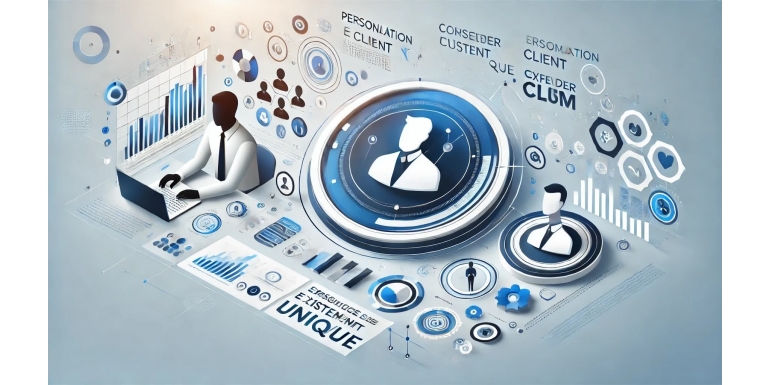
Introduction
In an increasingly competitive business environment, personalization has become a key element for standing out and retaining customers. Today’s consumers expect personalized experiences that precisely meet their needs and preferences. To achieve this, companies must rely on powerful tools, particularly Customer Relationship Management (CRM) systems. This article explores how a CRM, specifically Dolibarr, can be used to deliver a unique customer experience through effective personalization.
1. Understanding Customer Needs Through Data Centralization
Personalization starts with a deep understanding of each customer’s needs and preferences. A CRM like Dolibarr allows companies to centralize all customer information in a single database, accessible to all departments within the company. This includes purchase histories, past interactions, communication preferences, and more. By centralizing this data, Dolibarr helps businesses better understand customer behavior and anticipate their needs.
For example, by analyzing data in Dolibarr, you can identify a customer’s preferred products or services and offer personalized recommendations or promotions based on their purchasing habits. This approach not only enhances customer engagement but also increases the likelihood of conversion and loyalty.
2. Customer Segmentation for Targeted Campaigns
One of Dolibarr’s key features is the ability to segment customers based on specific criteria. This segmentation is essential for personalization as it enables targeted marketing campaigns that directly address the needs and expectations of each customer segment.
For instance, you can use Dolibarr to create segments based on purchase frequency, spending amount, or product preferences. Once the segments are defined, you can develop marketing campaigns tailored to each group, sending personalized messages that resonate with the specific interests of these customers. This personalization not only increases the effectiveness of marketing campaigns but also improves overall customer satisfaction.
3. Automating Processes for Large-Scale Personalization
Automation is another crucial aspect of delivering a personalized customer experience. Dolibarr allows for the automation of many processes while maintaining a high level of personalization. For example, you can set up automated rules to send personalized follow-up emails after a purchase, recommend complementary products based on previous purchases, or remind customers about items left in their shopping carts.
Through automation, businesses can manage a large volume of interactions while maintaining a personalized approach. This not only saves time but also ensures consistency in communication with customers, which is essential for building long-term trust.
4. Using Data Analysis to Refine Personalization
Data analysis plays a central role in optimizing personalization. Dolibarr offers advanced analytics tools that allow you to measure the effectiveness of personalization efforts and adjust strategies in real-time. For instance, you can analyze open rates of personalized emails, click-through rates, and conversion rates to identify what works best.
Using these insights, businesses can refine their approaches, test different strategies, and implement continuous improvements. This adaptability is crucial for remaining relevant to customers and ensuring that each interaction adds value to their experience.
5. Integration with Other Tools for Omnichannel Personalization
To provide a truly personalized customer experience, it’s important to ensure that all customer interactions are consistent, regardless of the channel used. Dolibarr easily integrates with other tools and platforms, such as ERP systems, marketing automation software, and e-commerce platforms, enabling omnichannel personalization.
For example, by integrating Dolibarr with your e-commerce platform, you can synchronize online sales data with your CRM, ensuring that product recommendations and special offers are consistent, whether the customer shops online or in-store. This integrated approach helps maintain a seamless and personalized experience at every touchpoint.
6. Continuous Improvement Through Customer Feedback
A CRM like Dolibarr not only stores data but also allows you to collect and analyze customer feedback. This feedback is essential for continuously adjusting and improving your personalization strategy. By monitoring customer comments and reviews, you can identify areas for improvement and adapt your offers and communications accordingly.
For example, if you notice that certain customer segments react negatively to a specific campaign, you can adjust your approach to better meet their expectations. By incorporating this feedback into your personalization strategy, you show customers that their opinions matter, which strengthens their engagement and loyalty.
Conclusion
Personalization has become essential for any company aiming to deliver a unique customer experience and stand out in a competitive market. A CRM like Dolibarr plays a crucial role in this by centralizing customer data, enabling precise segmentation, automating processes, and facilitating integration with other tools. By using Dolibarr’s features to personalize every interaction, businesses can not only improve customer satisfaction but also strengthen loyalty and drive long-term growth.
